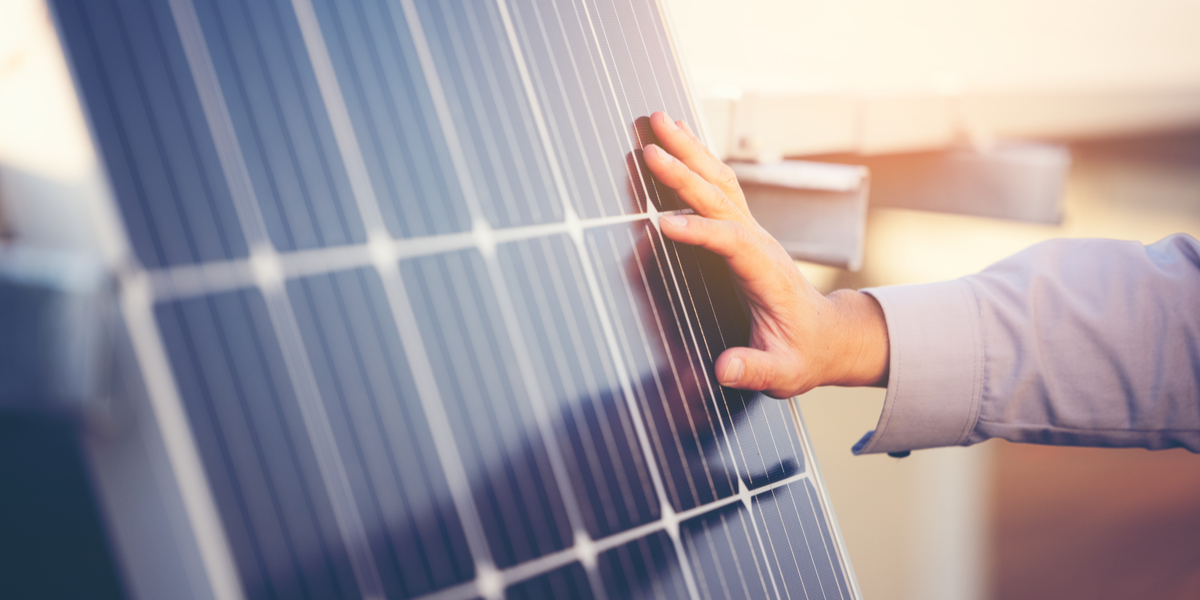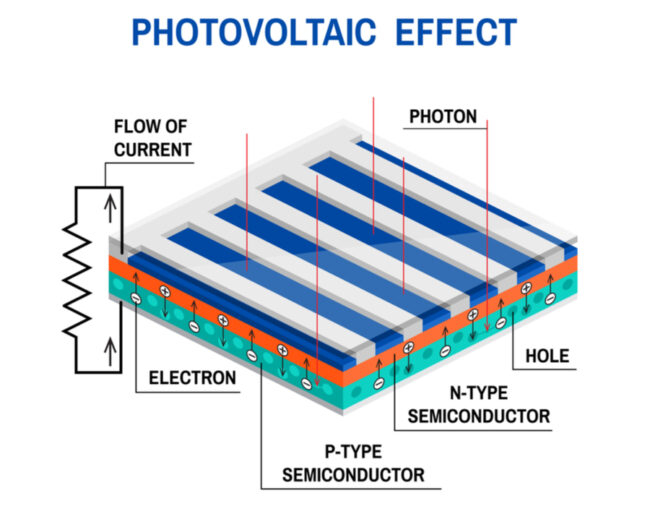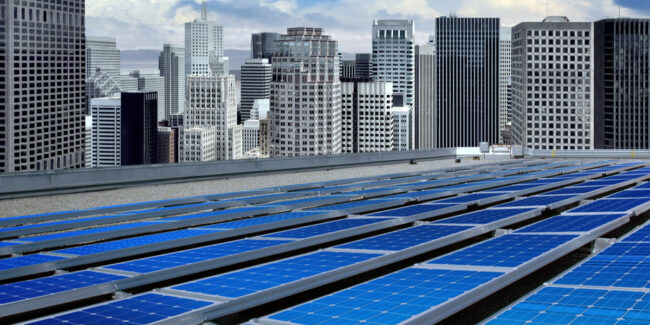
Many of our daily activities are driven by various forms of energy, including heat and electrical energy. Useful quantities of these vital resources can be obtained by channeling sunlight with solar panels and photovoltaic cells. Although solar and photovoltaic are two terms often used interchangeably, they don’t mean the same thing.
Solar vs. Photovoltaic
Solar is a term that can be used to refer to various forms of energy derived from sunlight, including thermal energy.
Photovoltaic is an energy conversion process where sunlight is used to generate electricity.
While the former is more accurately used as a broad term for captured sunlight energy, the latter is a more specific method of channeling solar energy (conversion to electricity).
What Is Solar?
Solar refers to energy generated from capturing sunlight. The radiant energy from the sun is often collected as thermal energy used to drive various heating processes or as electrical energy. Solar energy is captured using a device called a solar panel that generates heat (thermal solar) or electricity (photovoltaic solar).
How Do Solar Panels Work?
The design and working principles of solar panels are quite simple. Each solar panel is a combination of smaller units called solar cells or photovoltaic cells. These solar cells are composed of specialized materials that capture and convert sunlight to heat or electricity.
What Is Photovoltaics
Photovoltaics are specialized equipment that converts radiant sunlight into electrical energy. Photovoltaics are often small units of semiconductor materials with positively and negatively charged surfaces that respond to sunlight striking their surfaces.
How Do Photovoltaics Work?
These individual units are comprised of semiconductor material with excitable electrons on their exposed upper surfaces. The upper part of a photovoltaic cell is negatively charged as it contains extra electrons, while the bottom is positively charged as it has missing electrons.

When sunlight touches a solar panel, electrons on its negatively charged surface are knocked loose and move across the cell towards the positively charged end, creating an electrical current. The electricity generated is a direct current that can then be directed to an inverter unit for conversion to a useful alternating current that can power various electrical appliances. Learn more about how photovoltaics work.
How Can Your Business Benefit from Photovoltaics?
There are numerous advantages of utilizing photovoltaic cells for your business applications. The most popular benefits are highlighted below:
- High efficiency and reliability
- Extended warranty period
- Zero fuel requirements
- Minimal noise pollution
- Reduced maintenance costs
High Efficiency and Reliability
Photovoltaic cells are a highly reliable source of generating electrical energy. They are also highly efficient, with some panels working at up to 50% efficiency. This makes them particularly suitable as a power source for businesses and residential spaces.
Extended Warranty Period
Most solar panels come with extended warranty periods. In several cases, photovoltaic cells have warranties of 25 years and over, with most continuing to function for several years after.
Zero Fuel Requirements
Solar panels are particularly advantageous as they do not require any form of external fuel source. Once installed, photovoltaic cells can be run seamlessly without the carbon footprint associated with burning fossil fuels.
Minimal Noise Pollution
Photovoltaic systems are essentially noiseless. The lack of dynamic mechanical components means they can be installed and operated in virtually any private or commercial space without worrying about violating noise level regulations.
Reduced Maintenance Costs
Electricity-generating solar systems require minimal maintenance and repair once set up. Regularly scheduled inspections will negate the need for expensive component replacements. As a result, photovoltaic systems can be run for a very long time before replacing faulty components.

Trust Kaneka with Your Next Photovoltaics Project
At Kaneka, we are committed to providing next-generation energy management solutions to all our clients and partners. We offer state-of-the-art, highly efficient photovoltaic systems that can be seamlessly incorporated into your industrial and commercial spaces.
Please contact us online today to learn how we can help optimize your next photovoltaics project.